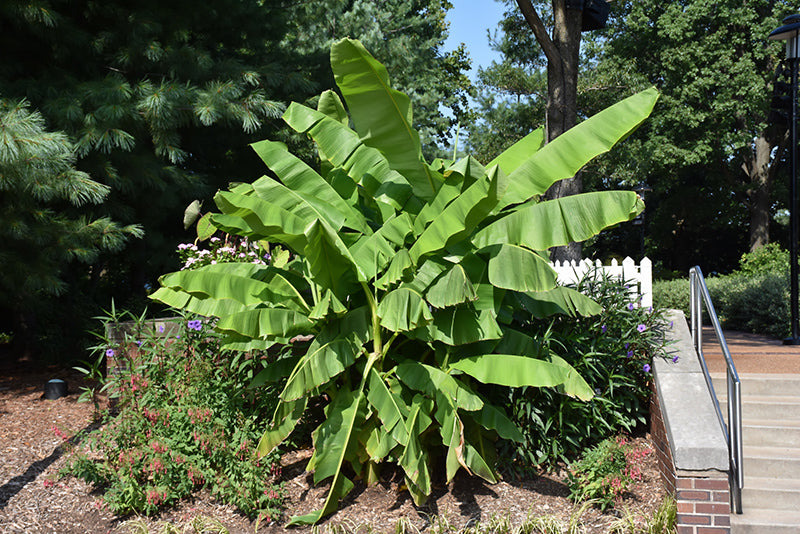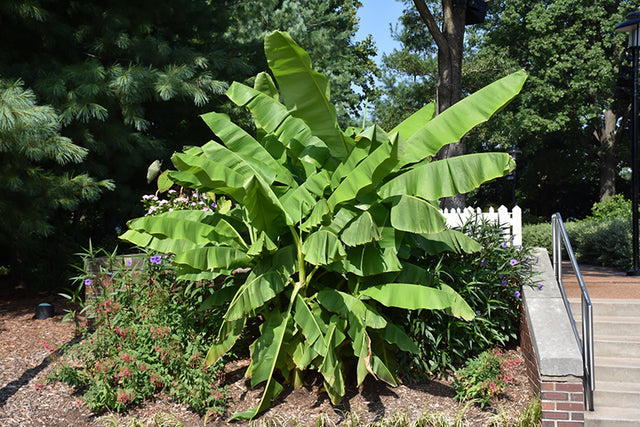Japanese Banana will grow to be about 10 feet tall at maturity, with a spread of 6 feet. It has a low canopy with a typical clearance of 3 feet from the ground. It grows at a fast rate, and under ideal conditions can be expected to live for approximately 30 years. As an herbaceous perennial, this plant will usually die back to the crown each winter, and will regrow from the base each spring. Be careful not to disturb the crown in late winter when it may not be readily seen!
Bananas are curious plants in a botanical sense. Strictly speaking they are perennials, with individual shoots rising up from underground rhizomes and maturing in one to two years, then ultimately dying after producing fruit, to be replaced by new shoots from the base. However, given their ultimate size and coarseness they almost behave as small trees in the landscape. This plant does best in full sun to partial shade. It does best in average to evenly moist conditions, but will not tolerate standing water. It is not particular as to soil pH, but grows best in rich soils. It is somewhat tolerant of urban pollution. Consider applying a thick mulch around the root zone in winter to protect it in exposed locations or colder microclimates. This species is not originally from North America.
Details
Botanical Name
Musa Basjoo
Common Name
Japanese Banana
Hardiness Zone
- 6
Appearance
Max Height
6 Feet
Max Spread
6 Feet
Plant Form
- Upright Spreading
Foliage Colour
- Green
Fall Colour
Flower Colour
- Butter
Edible
Edible Component
Edible Harvest Period
Edible Use
Fruit Colour
Growing
Flowering Period
In Mid Summer
Moisture
Average To Moist
Sunlight
Full Sun To Partial Shade
Maintenance
Medium
Deer Resistance
Get more information about this plant and others with our comprehensive plant finder tool.




